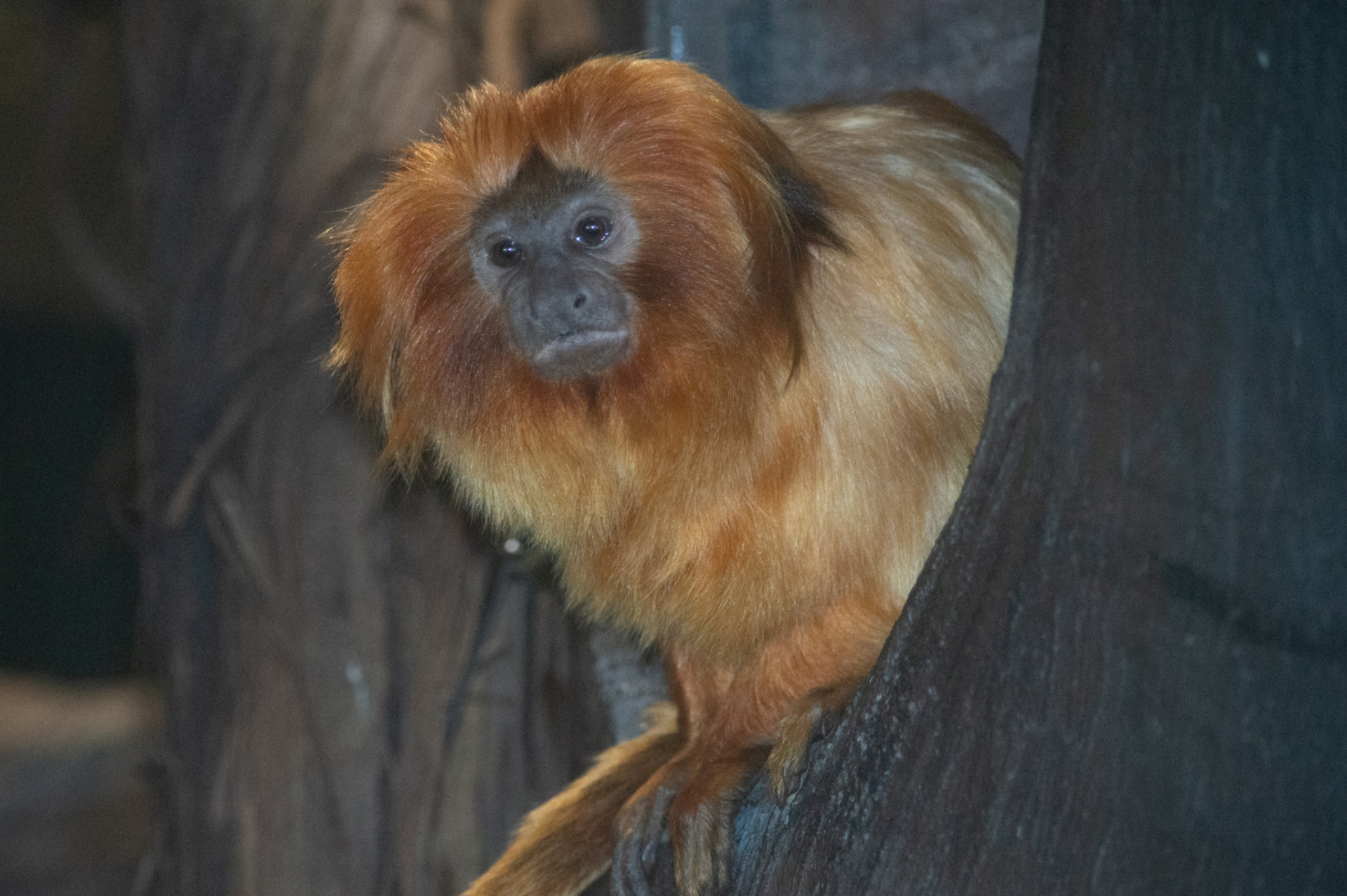Golden Lion Tamarin

Basic Information:
Scientific Name: Leontopithecus rosalia
Habitat: Golden lion tamarins are native to the Atlantic coastal forests of Brazil.
Diet: Golden lion tamarins eat fruits, insects, and lizards.
Size: 0.7 to 0.8 feet tall / 1.6 to 1.8 feet long
Weight: Around 1 pound
Lifespan: 11.6 years according to AZA Species Survival Statistics
Distribution Map:
I.U.C.N. Conservation Status:

What does this mean?
Endangered – a species determined by the International Union for Conservation of Nature (I.U.C.N.) to possess a very high risk of extinction as a result of rapid population declines of 50 to more than 70 percent over the previous 10 years (or three generations), a current population size of fewer than 250 individuals, or other factors.
Our Golden Lion Tamarins:
Kane (Male) – Born April 30, 2017
Arie (Female) – Born March 29, 2015
About Golden Lion Tamarins:
Tamarins encompass a whole swath of small monkeys found across Central and South American rainforests. This specific type of monkey can be identified by their non-prehensile tails, clawed hands in lieu of opposable thumbs, and their small size. While each breed of tamarin can vary drastically in color and physical features, the Golden Lion Tamarins are known for their golden fur and fluffy head hair that resembles a lion’s mane. While originally found all across Brazilian rainforests, today they only inhabit about 2% to 5% of their historic range in a few nature preserves in southeastern Brazil. Here they can be found in small family units where they traverse the treetops while foraging for food and hiding in ever changing nests found inside tree trunks. Unfortunately, due to a combination of poaching, deforestation, illegal pet trades, and predation from larger animals has caused this species’ population to degrade drastically. This is extra concerning due to these monkeys’ role as seed dispersers in their ecosystems. Thankfully, conservation efforts have been made by zoos, wildlife organizations, and the Brazilian government in order to stabilize the population and attempt to regrow it. And so far it has been working! More than 30 years of conservation efforts have increased the wild population from fewer than 200 to today’s estimated population of 3,700. In order for the wild population to continue to be viable and self-sustaining, the numbers must increase to 2,000 by the year 2025. However, long term projections for this are not so optimistic. Deforestation continues to run rampant which limits the land usable by these tamarins and due to inbreeding within the current population, chances for a large, healthy population to bounce back are very slim. Consequently, conservation efforts to protect the rainforests of South America are critical to the survival of this species in the wild.
Did You Know?!
- Female golden lion tamarins usually give birth to twins. All the members of her group will help her to take care of the babies, but the dad helps the most.
- As of 2011, there were only approximately 2,000 golden lion tamarins left in the world: 1,500 in the wild and another 500 in zoos.
- Golden lion tamarins share their meals with others in their social group through either offering bits of food to others through active sharing OR by letting others steal bit of their food from them through passive sharing.
